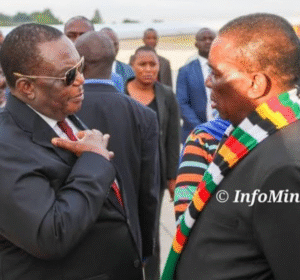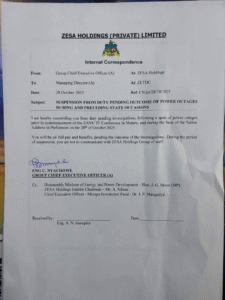The Scandalous Duplicity of FAZ: An Unprecedented Fraud in the CCC Nomination Process in Zimbabwe
The realm of Zimbabwean politics was recently rocked by a scandal of alarming proportions, perpetrated by none other than the Federation of Zimbabwean Administrators (FAZ). A most confounding transgression has come to light – the illicit fielding of double candidates during the Citizens Coalition for Change (CCC) nomination process. This audacious act of fraud is not only a first in Zimbabwe’s political history but also poses serious questions about the sanctity of democratic processes.

FAZ, an organisation that is expected to uphold the highest standards of integrity and transparency, stands accused of betraying the trust bestowed upon them. The CCC, a potent political force in Zimbabwe, has been left to grapple with the consequences of this fraud, raising questions about the legitimacy of the candidates and the credibility of the upcoming elections.
The scandal unraveled during the nomination process, an essential prerequisite in a democracy where potential candidates present their credentials for public scrutiny. In this process, FAZ brazenly fielded two sets of candidates under the CCC banner. The duplicity was not immediately apparent until the oversight bodies began vetting the nominees’ paperwork.
The public reaction was swift and unequivocal. The blatant disregard for the electoral process’s sanctity incensed many, leading to a nationwide call for accountability and transparency. Many are now questioning the viability of the upcoming elections, casting doubts on FAZ’s intentions and operations.
But what does this fraud entail for the CCC and Zimbabwe’s political landscape? The CCC is a coalition of forces rallying for change in Zimbabwe. A scandal of this magnitude potentially undermines their credibility, especially when the dust of the electoral process is yet to settle. For the broader political landscape, this situation highlights the urgent need for robust mechanisms to prevent such fraudulent activities in future.
Moreover, this incident underscores the importance of trust in our democratic institutions. If the administrators responsible for conducting a fair and transparent election are found guilty of such a monumental fraud, how can the citizens place their trust in the electoral process?
In the wake of this scandal, there are calls for an immediate investigation into FAZ’s actions. Some are advocating for a complete overhaul of the nomination and vetting process to prevent similar incidents from occurring in future.
In conclusion, this scandal casts a long shadow over the political landscape in Zimbabwe. It’s a stark reminder of the fragility of our democratic processes, highlighting the pressing need for constant vigilance and robust checks and balances. This event must be a turning point, prompting necessary reforms to ensure that such acts of fraud do not recur and the voice of the people is not silenced by such duplicitous actions.
The next steps are crucial – will the government take necessary action against the alleged fraud by FAZ? Will the Zimbabwean political system be able to recover from this blow and restore faith in its electoral processes? The answers to these questions will determine the course of Zimbabwe’s political future and democracy.
As the dust of this scandal starts to settle, one thing is for certain: the actions of FAZ have triggered an urgent discussion on the need for a comprehensive review of the electoral process in Zimbabwe. This incident serves as a wakeup call for all – the fight for a truly democratic Zimbabwe continues, and it won’t be easy.




